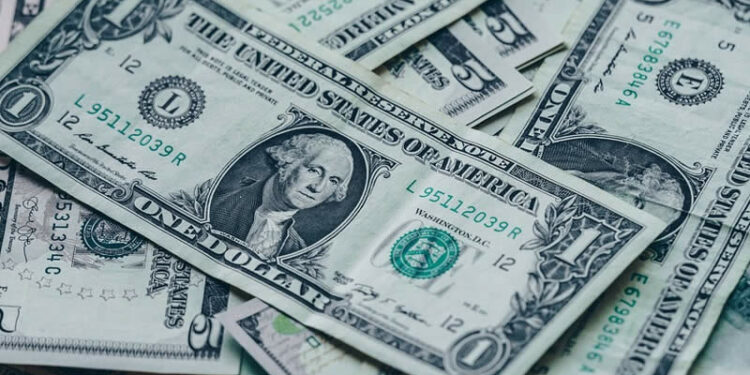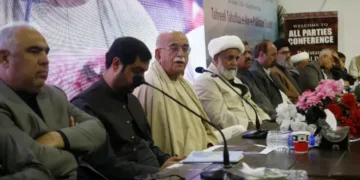The Pakistani rupee experienced a significant gain of Rs15 against the US dollar in the interbank market on Tuesday. This surge occurred during the first trading session following Pakistan’s last-minute acquisition of funding from the International Monetary Fund (IMF).
According to the Forex Association of Pakistan, the local currency witnessed a notable appreciation, reaching Rs271 by around 10 am.
Khurram Schehzad, the CEO of Alpha Beta Core, attributed the decrease in the value of the dollar in the domestic market to the approval of the stand-by agreement with the IMF.
Komal Mansoor, the Head of Strategy at Tresmark, forecasted that the market might stabilize within the range of 272-276 for the rest of the day. “The central bank will be instrumental in guiding the currency levels there after,” she said.
Mettis Global Director Saad bin Naseer said that those who were hoarding dollars will panic once foreign exchange reserves start building.
“And if this happens, then you will see an increase in remittances with banking channels because the hundi-hawala won’t take a risk,” he said.
Currency dealer Zafar Paracha said that the IMF agreement had had a positive effect on the economy as investor confidence had been restored. He hoped that foreign investment would also increase in the days to come.
He said that the government needed to focus on bringing down the dollar rate low and let it remain there. He said that Pakistan’s financial credentials were “good” and the only area in which the country lacked was management, adding that the government should also review its policies.
The shortage of cash rupee due to bank holidays provided an opportunity to several money changers to buy the dollar on their own available rates, which was in the range of Rs275 to Rs285 on Monday.
The first day trading of the open market after Pakistan’s Standby Agreement (SBA) with IMF for $3 billion created sense of economic stability with better price of the rupee. Due to bank holidays, only a few exchange companies had cash rupees, and even that was limited. Most of the companies were unable to buy dollars despite the rush for sale.
Exchange companies said that there were only sellers; no buyers for dollars were available. In fact, the open market has lost most of its business with banks due to the State Bank of Pakistan’s decision, which allows banks to purchase dollars from the banking market instead of exchange companies.












